India’s Enforcement Directorate takes major action against controversial business entities linked to the infamous Gupta family. The ED raids swept across multiple locations, targeting companies connected to Ajay, Atul, and Rajesh Gupta yesterday. This coordinated operation follows formal requests from South Africa seeking international cooperation in ongoing investigations.
Understanding the Background of This Major Investigation
The Gupta brothers became household names across South Africa due to their alleged involvement in state capture scandals. These businessmen of Indian origin built extensive networks spanning mining, media, and technology sectors throughout their years there. Corruption allegations against them shook South African politics and prompted widespread calls for justice.
South African authorities have been pursuing these cases for several years through various legal channels and investigations. The Zondo Commission’s findings implicated the Gupta family in systematic corruption involving former President Jacob Zuma. Evidence suggests millions of dollars were siphoned from state coffers through fraudulent contracts and deals.
International cooperation becomes crucial when suspects operate across multiple jurisdictions and maintain assets in different countries. South Africa’s request to Indian authorities demonstrates the global nature of modern financial crimes. Cross-border investigations require extensive coordination between various law enforcement agencies.
Details of the Enforcement Directorate Operations
The coordinated raids targeted businesses across Delhi, Mumbai, and other major Indian cities simultaneously. ED officials seized documents, electronic devices, and financial records from multiple locations during these operations. Investigators focus on tracing money flows and identifying assets potentially linked to South African corruption schemes.
Key locations searched include:
- Corporate offices in New Delhi and Mumbai
- Residential properties owned by family members
- Bank branches holding suspected accounts
- Business partner offices and associated entities
The investigation examines whether funds from South African operations were transferred to Indian entities illegally. Money laundering charges could apply if authorities prove illicit funds entered India through these business channels. Financial institutions also face scrutiny regarding their role in facilitating these transactions.
Digital forensics teams analyse seized electronic equipment for evidence of financial crimes and communication records. These technical investigations often reveal hidden connections between seemingly unrelated business entities and transactions. The scope of evidence collection suggests authorities are building comprehensive cases against multiple suspects.
International Cooperation in Financial Crime Cases
Cross-border investigations like this one demonstrate growing cooperation between nations fighting financial crimes and corruption. Treaties and agreements enable countries to share evidence and coordinate enforcement actions against international criminal networks. The South Africa case shows how corruption in one nation can have global ramifications.
India maintains mutual legal assistance treaties with numerous countries to facilitate such cooperative investigations. These agreements allow authorities to request evidence, freeze assets, and extradite suspects across international boundaries. The Gupta case tests these mechanisms in a high-profile corruption investigation.
Interpol and other international agencies also support these investigations by sharing intelligence and coordinating global efforts. Red Corner notices against the Gupta brothers highlight the international nature of this pursuit. Multiple countries now monitor their activities and restrict their movements.
Impact on India-South Africa Relations
This investigation strengthens diplomatic ties between India and South Africa by demonstrating mutual commitment to fighting corruption. Both nations benefit from eliminating criminal networks that damage their reputations and economic systems. Successful cooperation could serve as a model for future international investigations.
Trade relationships between these countries could improve as corruption investigations reduce illegal activities affecting legitimate business. Clean governance practices attract more foreign investment and strengthen economic partnerships between nations. The Gupta case resolution may restore confidence in bilateral business dealings.
Regional organisations across Africa and Asia watch these developments closely as precedents for handling similar cases. Success stories in international cooperation encourage other countries to pursue corrupt actors hiding across borders. The outcome could influence future extradition treaties and enforcement mechanisms.
What This Means for Asset Recovery Efforts
Asset recovery represents a crucial component of corruption investigations, ensuring stolen funds return to their rightful owners. The ED raids aim to identify and freeze assets that may belong to the South African people. Successful recovery could return millions to development projects and public services.
Legal processes for asset forfeiture require proving connections between seized property and criminal activities beyond a reasonable doubt. Documentation seized during raids provides evidence for these complex legal proceedings. International courts must recognise the legitimacy of these claims.
Victims of corruption in South Africa await justice and compensation for damages caused by these alleged schemes. Asset recovery efforts could fund reparations for communities affected by diverted development funds. The investigation’s success impacts thousands of people seeking accountability.
Looking Ahead: Next Steps in the Investigation
The raids represent just the beginning of what could become lengthy legal proceedings involving multiple jurisdictions. Prosecutors must now analyse seized evidence and build cases that meet international legal standards. Extradition requests may follow if sufficient evidence supports criminal charges.
Defence teams for the Gupta family will likely challenge these proceedings through various legal avenues and appeals. International cases often involve complex jurisdictional disputes and procedural challenges that extend timelines significantly. Public patience becomes essential as justice systems work through these intricate processes.
Success in this case could encourage similar investigations against other international corruption networks operating across borders. The precedent set here influences future cooperation between countries fighting financial crimes. Global efforts to combat corruption depend on such collaborative enforcement actions.

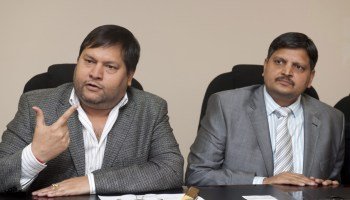

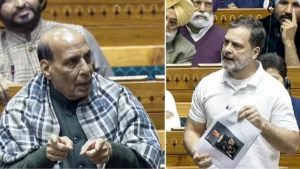
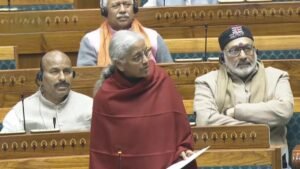
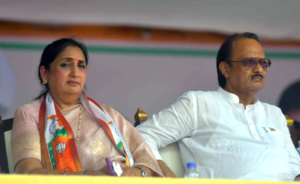
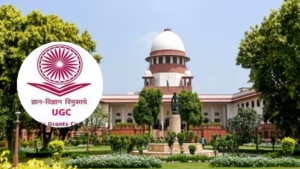

Be First to Comment